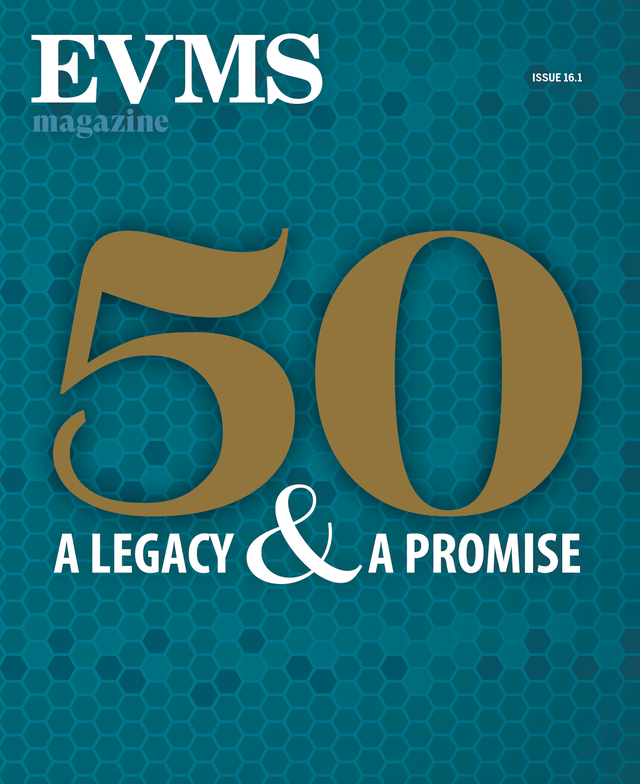Publications
Marketing and Communications is responsible for the design and production of a variety of institutional publications, including:
EVMS Magazine
 The magazine publishes three times a year and is intended for a wide audience including the general public as well as faculty, staff, residents and students.
The magazine publishes three times a year and is intended for a wide audience including the general public as well as faculty, staff, residents and students.
Facts & Figures
-180x239.jpg) Facts and Figures, updated annually, includes a broad range of details about the school's educational, patient-care, research and community-service missions.
Facts and Figures, updated annually, includes a broad range of details about the school's educational, patient-care, research and community-service missions.EVMS Pulse
Find the latest news about Eastern Virginia Medical School. EVMS Pulse provides readers with up-to-date news, research discoveries, health features and more. Check evms.edu/pulse today!
